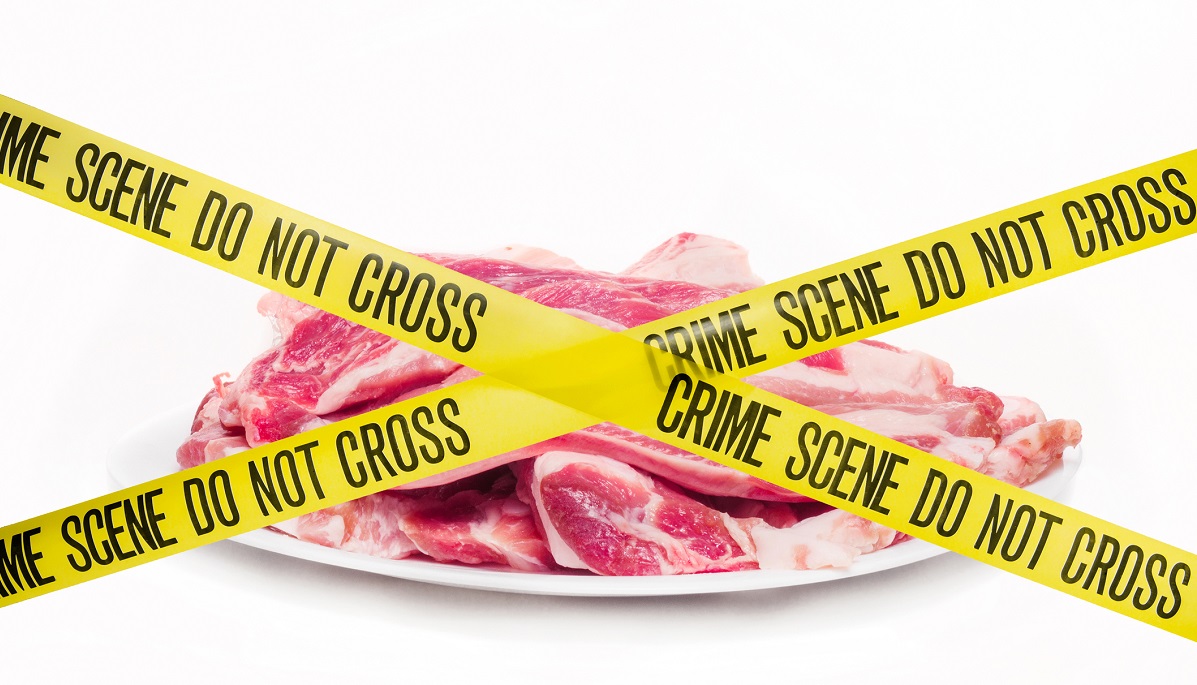Meat, seafood, and alcohol are among industries identified as being at high risk for food crime, according to a Scottish food crime unit.
A strategy for 2022 to 2025 outlines the priorities and actions being taken to prevent food crime, detect and deter criminality and prosecute offenders. The practice is often financially motivated but can pose a serious risk to public health. Priorities are reviewed annually.
The Scottish Food Crime and Incidents Unit (SFCIU) is part of Food Standards Scotland.
Officials said it was “highly likely” that food crime was taking place in the meat sector but it was challenging to understand the scale of criminal activities.
There are concerns in relation to fraudulently tagged livestock, misrepresentation of meat products, either by origin or shelf life date, and substitution.
Potential risks include stolen livestock, illegal slaughter, animal by-product issues, and food crime in products such as ready meals. One action is sampling and traceability initiatives based on analysis and intelligence to verify and enforce the authenticity of supply chains.
Seafood and alcohol issues
Reporting continues to suggest a threat to the seafood sector from those operating in and around Scotland and from imported products, said SFCIU.
Because of current economic pressures, the likelihood of food crime has increased across the supply chain with the potential for low-level criminality to complex fraud. Scottish businesses and consumers are faced with food crime such as purchasing substituted or mislabeled products in relation to date, quality, or origin.
Possible risks are illegally treated tuna, fraudulent use of official certification, and lower quality products sold as a premium. Better intelligence is also needed to identify other origin salmon sold as Scottish.
SFCIU said the agency would continue efforts with European countries to tackle treated tuna and raise seafood fraud with the Global Alliance on Food Crime.
It is “very likely” that counterfeit alcohol is being sold in Scotland, according to the document.
Vodka products remain the prime area of concern but a focus is also needed on other alcoholic beverages.
Potential risks are counterfeit alcohol entering Scotland via Northern Ireland, production of fake alcohol in the country, sale of counterfeit wine and spirits, and imports of material and equipment involved in making dodgy products.
There is also concern about certain imported products from supply chains assessed as high risk.
Issues include the UK importing food, drink, and animal feed that is not authentically mislabeled, or counterfeit and such foods transiting Scottish ports undetected and entering the market. Businesses are also facing supply chain disruptions, market pressures, and economic challenges which may increase vulnerability to fraud.
Longer-term issues include misrepresentation in premium products such as organic, fraud linked to allergens and plant-based ingredients, and assessing how E-commerce is being used to commit food crime.
(To sign up for a free subscription to Food Safety News, click here.)

